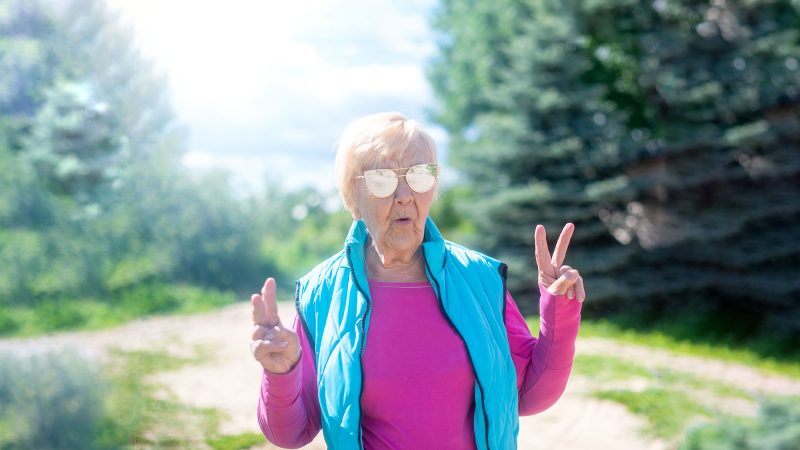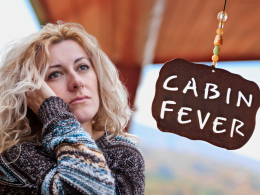Hiking can allow you to breathe in the fresh air and enjoy views typically only seen in photographs. However, it can also be challenging and downright painful at times.
It seems the older we get, the more difficult hiking some of our favorite trails becomes. Today, we’re going to share with you five signs that you might be too old for hiking. Let’s take a look!

Is There Such a Thing as Being ‘Too Old to Hike’?
Age brings experience, and experience can make accomplishing things easier, including hiking. Experience can help replace or make up for any loss of physical strength that you might have had in your younger days. So in that sense, there really is no such thing as being “too old to hike.”
Many people talk about their glory days being when they were in high school or college. However, your glory days don’t have to be behind you.
Your glory days might just be the days you’ll spend on the trail making memories and enjoying the views. Who knows, maybe you’ll even show those young pups on the trail a thing or two.
5 Signs That You’re Too Old for Hiking
We don’t think you’re ever too old to lace up your hiking boots. However, there are a handful of obvious signs that you should think twice before hitting the trail.

#1. Your Doctor Doesn’t Give Their Approval
You should always consult with a medical professional before attempting strenuous activities, which include hiking. We don’t recommend going against the doctor’s orders when it comes to your physical activity.
There’s likely a reason why your doctor may not recommend hiking, and if you’re unsure why, then ask them. Pushing the limits when it comes to your health can be extremely dangerous. If you disagree or can’t trust your doctor, it’s time to find a new one.
However, this isn’t an excuse to hop around from doctor to doctor until you get approval to hike. If you get a second opinion and they agree with the previous doctor’s assessment, it might be time to consider looking for alternatives to hiking.
#2. You Are Physically Bedridden
While there are some dog-friendly or family-friendly trails, we haven’t found any that are bed-friendly. If you’re constrained to a bed, you’re not going to be able to hike. However, just because you can’t get out on the trails doesn’t mean you can’t still enjoy them.
With technological developments, many hikers share their hiking adventures on YouTube and other social media pages. They share footage and stories from their hikes with their followers, and you can live vicariously through them. It’s not a replacement for feeling the dirt under your boots, but it’s a worthy substitute to feed your hiking urges.

#3. You’re Not Willing to Switch Up Your Training
Hiking can be grueling and often requires your total body to get through even some of the easiest hikes. If you’re unwilling to put in the time and effort for training, it’s likely time to consider a few alternatives to stay active.
A few good alternatives that are easier on your body include swimming, walking, or an elliptical machine. To limit the impact on your bones and joints, look for activities that keep you moving but limit the risk of injuries or damage to your body. Just because you can’t enjoy hiking doesn’t mean you have to remain stationary.
#4. You Don’t Want to Fuel Your Body Appropriately
Just like a car, your body requires fuel. Without proper fueling, you’re not going to feel or perform optimally.
Whether you’re hiking or just getting through the day, what you put into your body can have a significant impact on how you feel. While we would agree that cheese fries and donuts taste delicious, they’re likely not going to help you get on the trail if you’re making them a regular part of your diet.
If you’re hoping to spend more time hiking, you’ll need to eat a more balanced diet. It doesn’t mean you can’t splurge now and then, but moderation is key. We love to eat, but when we’re serious about physical activity, our eating habits are one of the first things we adjust to accomplish our goals.
#5. You Have Unresolved Health Issues
If you have an unresolved health issue, it’s not a good idea to push physical activity limits. It’s most definitely not the time to pick up strenuous hiking as a hobby.
This is why you should consult a medical professional before starting any physical activity. After resolving the issue, your doctor may be willing to give you the green light to introduce hiking into your fitness regimen slowly.

Tips for Healthy Hiking at Any Age
No matter your age, hiking can be a tremendous amount of fun. It can allow you to connect not only with nature but also with yourself. Here are a few tips for healthy hiking that we think you should keep in mind.
Use Trekking Poles
While you may be able to muscle your way through a hike, you don’t have to. Trekking poles can be a great aid in helping turn a three-mile hike into a five, 10, or even longer hike. Using trekking poles can help with your power and endurance for uphill and protect your knees when going downhill.

Take It Slow
When you set out for a hike, it’s easy to get caught up in the adrenaline rush and excitement. This often results in a faster pace than you initially planned. When you exert too much energy at the start, you’re more likely to cut your hike short or require frequent breaks for the remainder of the hike.
A slow and steady pace is the best plan of attack when you’re hiking for fun. It’s not a race, and you’re not competing with others on the trail. Enjoy your hike and let them enjoy theirs. Support your fellow hikers and maintain positive energy for those hiking around you.
Don’t Forget to Stretch
Make sure you do a bit of stretching before any physical activity, including hiking. You don’t want to pull a muscle or experience cramps a mile or two from the trailhead. This can not only delay any future hiking plans but also make for an excruciating return hike to your vehicle.
Keep in mind that overstretching can be equally as risky when it comes to injury. You don’t want to hurt yourself before you even hit the trail. So do a few easy stretches and take it slow when you first hit the trail.

Eat Well
Don’t set out on an empty stomach. How you fuel your body starts long before you hit the trail. What you eat the night before can have a huge impact on how you feel the following day. It’s not the best idea to eat a ton of junk food or drink alcohol the night before a hike.
Having a well-balanced diet and drinking plenty of water is a great way to set yourself up for a fabulous hiking experience. Bring along light snacks and food to enjoy during the hike to keep yourself fueled. Don’t forget plenty of water to stay hydrated. Save the cheeseburger as a post-hike reward for your hard work.

Your age doesn’t have to stop you from hiking and being active. We’ve encountered plenty of hikers who are many years older than us.
When you follow some of the tips we’ve discussed, you can stay on the trails for many years to come. However, you should always listen to your body and your doctor when knowing how hard to push it.
What’s one of your favorite hikes you’ve hiked or hope to hike someday?
If You Want the Latest Travel News, Join Our Mailing List
Don’t rely on biased RV industry news sources to keep you informed. Stick with Nomadic News. We publish articles and breaking stories that matter to you every weekday.










